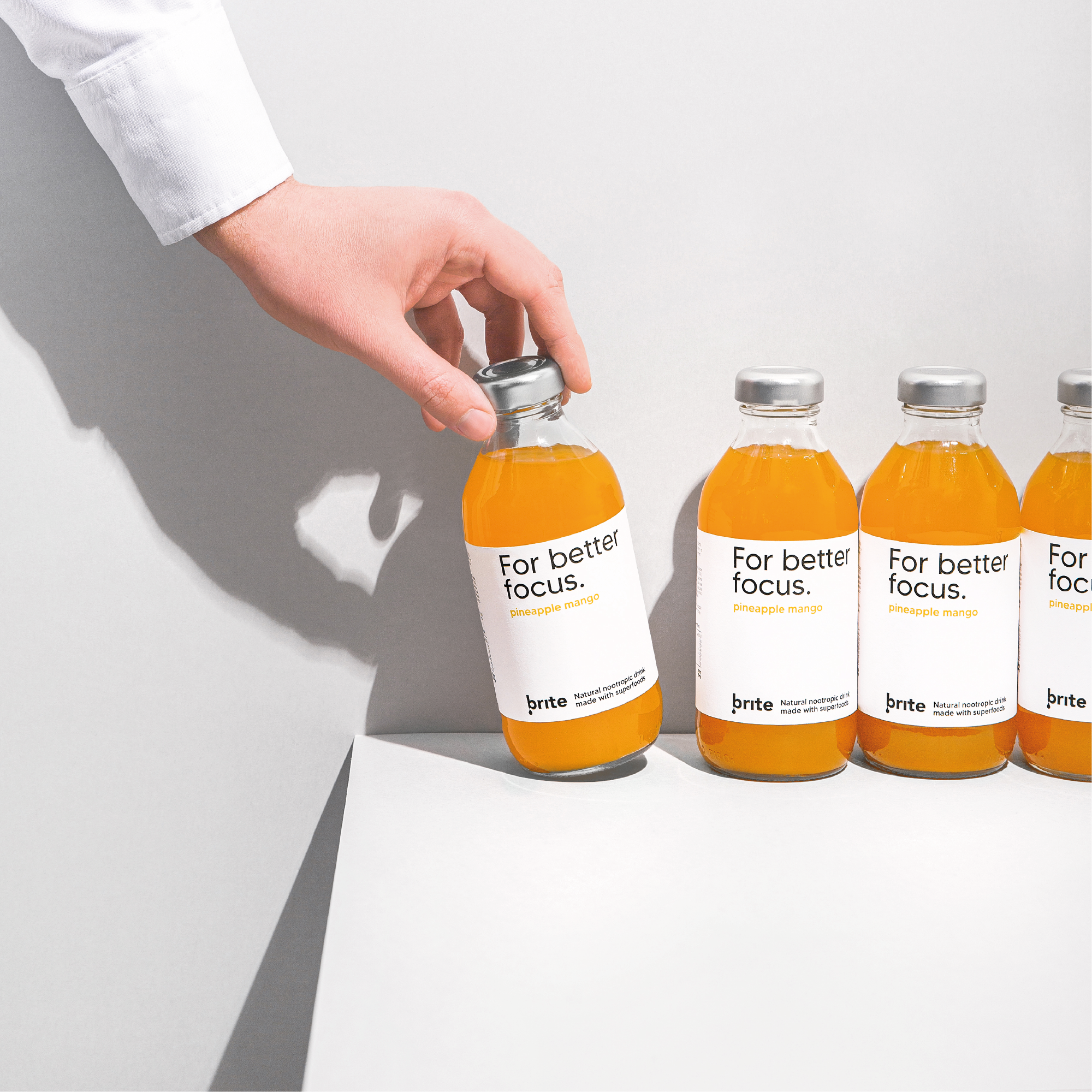The Sunday Scaries can get the best of us! Feeling anxious as Monday ticks around is totally normal. In fact, two thirds of Britons suffer a ‘heightened anticipatory anxiety’ in the buildup to starting back at work.
We all have different ways of coping: binging our comfort show on Netflix, an early bedtime, or a Sunday yoga routine. But a nootropic can be a great addition to your collection of strategies for combatting nerves.
How do nootropics help anxiety?
Nootropics have a broad definition, but simply put, they are molecules which can improve cognitive functions. They do this by - but are not limited to - increasing blood flow to the brain, making more energy available for neurons and boosting happy hormones. So when we help the brain out with these neural processes, we put ourselves in a better position to deal with stressful stimuli. Our no-nonsense guide to nootropics will take you through everything you need to know about nootropics!
Of course, not all nootropics help with anxiety. Caffeine is known as a nootropic for giving you energy but can increase anxiety symptoms. Equally, a synthetic nootropic like modafinil is prescribed for individuals with ADHD but can exacerbate nervousness. In this blog, we’re concentrating solely on natural nootropics that have demonstrated benefits in dealing with anxiety with relatively little risk of side effects.
L-Theanine
What is it? L-Theanine is an amino acid that is primarily found in green and black tea, as well as some mushrooms.
How does it work? Its main benefits include increasing concentration while combating anxiety. It does this by increasing brain activity in the alpha frequency band. Alpha brainwaves are associated with what is sometimes referred to as the ‘Zen state’, making it one of the best nootropics for both anxiety and productivity.
Recommended dose: Studies suggest that 100mg is enough L-Theanine to stimulate this process. You can get this through a pill or two strongly brewed cups of tea. However, if you’re not a tea drinker, Brite drinks have exactly the same amount of L-theanine, and have combined it with caffeine to sustain your productivity throughout the day.
Gotu Kola
What is it? This nootropic, known sometimes as Tiger Grass, or by its Latin name Centella Asiatica, is a herb that features in a lot of Chinese Medicine.
How does it work? A 2016 study, showed that Gotu Kola can specifically be effective on the anxiety that is caused by sleep deprivation. It’s presumed that its richness in folic acid (known to be beneficial in cognitive functions generally) is what helps with anxiety.
Recommended dose: If you’ve been struggling with a few disrupted nights, taking 500mg of Gotu Kola twice a day, for a period of up to two weeks, might help you function better at work.
Kava Kava
What is it? This is a pretty well-documented nootropic, that comes from the root of the Kava plant, found in the Pacific Islands.
How does it work? Numerous studies have demonstrated its effectiveness on improving sleep quality. While the jury is still out on whether it simply reduces anxiety, and therefore improves sleep, it remains an effective nootropic for anxiety and sleep. It is often recommended in preference to sleeping medication, which can be highly addictive.
Recommended dose: You can purchase Kava tea or Kava capsules, but anywhere between 70–250 mg per day is an effective dose.
Lion’s Mane
What is it? It’s a pretty strange-looking mushroom, that resembles a lion’s mane as it grows. They tend to grow on dead logs, and can be found all around the world.
How does it work? The bulk of Lion’s Mane’s benefits are related to its ability to reduce inflammation within the body. This may seem far removed from the problem of anxiety, but chronic inflammation can cause the body to go into an ‘alert setting’ that can contribute to mild feelings of nervousness and depression. It also has a number of compounds that encourage brain cell growth, making it one of the best nootropics for anxiety and brain health!
Recommended dose: Anywhere from 500mg to 3000mg a day is considered a safe dose with relatively few side effects, although it’s best to follow the instructions on the product you have purchased.
Ashwagandha
What is it? Like many of the best nootropics for anxiety, this is a herb that features prominently in Ayuverdic medicine. Ashwagandha is a small shrub, also known as Indian Ginseng. It’s native to India and Southeast Asia.
How does it work? Ashwagandha is an adaptogen - and one of the strongest - meaning it can exert a ‘normalising’ effect on the body. By helping us to control stress mediators like cortisol, kinase and heat shock proteins, it can help lead us back to base-level after encountering a stressful stimulus.
Recommended dose: Studies have shown that people taking 250mg ashwagandha over an enduring period of time reported a significant reduction in anxiety. So while it could help with the stress of a Sunday email, it might take a few weeks to feel the effects.
And that’s our list of the best nootropics for anxiety and sleep! When deciding on a nootropic for you, it’s important to recognise that while nootropics do help anxiety, they don’t resolve it. What’s recommended in this blog will simply put you in a better position to bring yourself back to a place of calm after the source of stress has either subsided or been resolved. If what you’re feeling is causing distress on a daily basis, it’s best to consult your doctor. Want to find out more about how nootropics can help with anxiety? We’ve got you covered.
Do nootropics help anxiety? | Brite Nootropics for Anxiety


